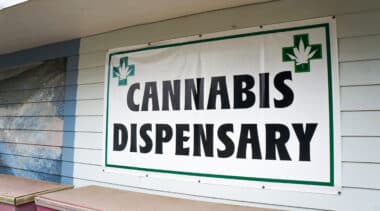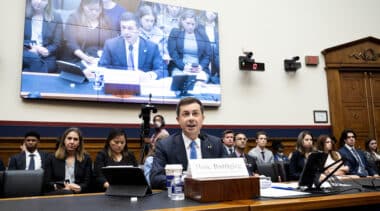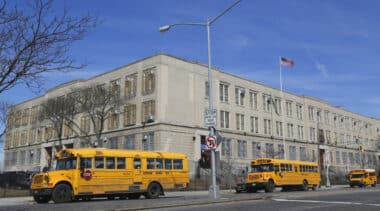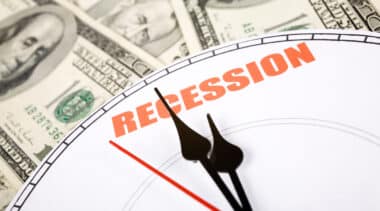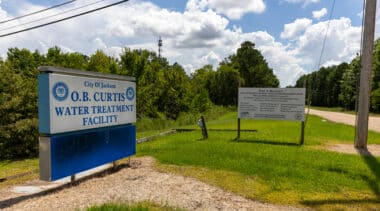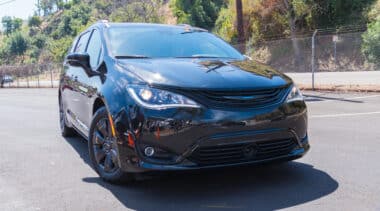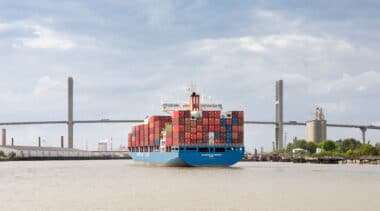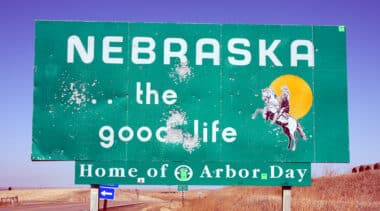-
State-legal cannabis businesses pay astronomically high federal taxes
The proposed States Reform Act would drastically reduce the federal tax burden facing legal cannabis companies and lay the groundwork for a stable legal marketplace.
-
Federal RAISE grants continue to fail to prioritize key transportation projects
Of the 166 projects awarded RAISE grants, just over half were directly related to transportation.
-
Democratic treasurers defend ESG investing
But data doesn't back up their claim that buying the stocks of ESG-oriented companies will produce better long-term investment returns.
-
New York’s public school spending continues to grow while enrollment declines
New York schools lost tens of thousands of students but inflation-adjusted education spending increased by $26.4 billion between 2002 and 2020.
-
Reforming the Airport Investment Partnership Program
Privatization could bring needed improvements to U.S. airports while containing costs and shifting fiscal risks away from taxpayers.
-
Most state pension plans are not adequately prepared for a recession
A recession could add trillions in debt to public retirement systems’ existing unfunded liabilities.
-
Webinar: ESG trends and impacts on public pensions
How environmental, social, governance (ESG) strategies and trends are impacting public pension systems and taxpayers.
-
Jackson’s boil advisory lifted, now must address long-term water problems
Jackson's water, sewer, and stormwater system need an estimated $2 billion to get them working again.
-
The differences between individual and institutional investors considering ESG factors
Individual investors should be free to consider ESG, but this idea should not scale to the activities of large investment fund managers.
-
Biden administration’s monkeypox funding request highlights the flawed budget process
The Biden administration has asked Congress to approve $4 billion in emergency funds to help address the monkeypox outbreak.
-
A flexible, on-demand transit option being tested in Richmond
The Richmond Moves shuttle is the type of solution that could help public transit meet the needs of 21st-century riders.
-
How to reform harbor funding
Ensuring that U.S. harbors have sustainable funding sources is crucial to a stable supply chain.
-
First Circuit makes clear cannabis is subject to interstate commerce clause
State restrictions on the free movement of persons and capital, even in the cannabis industry, are unconstitutional.
-
How Texas can improve the state’s student transfer law
State policymakers can remove barriers for families by pursuing three policy reforms that would modernize the student-transfer law.
-
Congress aims at big tech companies but would hurt startups and innovation
The bill aims to limit big tech's power, but it would actually end up limiting innovation, start-up companies, and economic growth.
-
Florida advances toward XBRL adoption, but Government Finance Officers Association opposes
This development is a major milestone in the evolution away from PDF-based financial reports and toward machine-readable disclosure.
-
Nebraska’s K-12 education funding system lacks transparency, relies too heavily on property taxes
Nebraska ranks third in the nation for the proportion of total K-12 public school revenues it derives from local revenue sources.
-
Nebraska K-12 Education Funding Reform Model
Nebraska K-12 Funding Reform Model allows users to simulate how changes to the state’s school funding system might affect each school district in the state.
